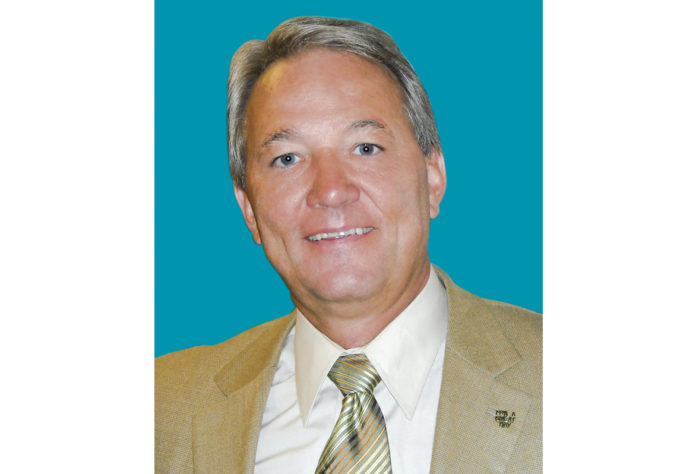by Thomas Dullien
The first phase of the post-pandemic puzzled us with a strange juxtaposition: Our players returned to the casino resorts in droves, thereby creating record revenues while the employees, necessary to create the exceptional guest service experiences, stayed home, thereby creating massive overtime accumulations and burn-out of the existing staff that pushed employee retention to an all-time low. What is happening?
If there is a common denominator, it is escapism. After being socially isolated and with no place to go, guests escape into a fantasy land that promises winnings, relaxation, and a buzzing social environment while keeping social distancing.
Employees on the other hand discovered that staying at home allowed a remote and safe connectivity to the workplace. In many cases, it was financially prudent to receive federal support for food, eviction protection, extra childcare support, and tax relief while collecting $300 extra per week on unemployment. Saving money on transportation, meals during work and cleaning work clothes made it even more appealing.
Science will need to crunch mega data for some time to come up with clearly defined reasons why this happened. But if escapism is a common denominator, a second reason is the total collapse of trust. Not just trust between each other, but collapsing trust in the economic, financial, bureaucratic, and health care systems. Collapsing trust in information, and between hurricanes, floods, wildfires and other disasters, a collapsing trust in our reality.
When our industry called back its former employees, one out of three decided not to return. Some decided to chase significant sign-up bonuses and others returned for a short time, only to move quickly to a seemingly greener pasture with the competition. Organizations were no longer hiring employees. Now employees are hiring ‘their’ company, and the demands for higher wages and better benefits are usually granted without hesitation.
The Challenge
Companies have twisted themselves into knots to empower and engage their employees. Meta-data analysis shows that high engagement – defined as having a strong connection with one’s work and colleagues, feeling like a real contributor, and enjoying ample chances to learn – creates an employee-centric culture that is good for business. Despite the evidence that you can’t buy higher job satisfaction, organizations still use golden cages to keep good employees. Such efforts fail to have a lasting effect on retention and performance. The pandemic seems to have brought all of these efforts to a halt.
The neuro-economist Paul Zak provided great insights before the pandemic with his books about the ‘Moral Molecule’ and ‘Trust Factor.’ After over 10 years of research, his studies proved that the neurotransmitter “oxytocin” plays a crucial role in our sense of trust, morality and empathy.
This neuro-chemical, unique to mammals and in particular humans, is responsible for empathy and bonding. As such, it helps us to focus on eight specific actions that are well known management initiatives but deserve special attention today. Managers have tried various strategies and perks to boost employee engagement – all with little impact on long-term retention and performance. But now, through his research on the brain chemical oxytocin, his framework can help to create a culture of trust and build a happier, more loyal, and more engaged workforce. Ultimately, Zak concludes, managers can cultivate trust by setting a clear direction, giving people what they need to succeed and then getting out of their way:
• Facilitate job crafting to find new ways of doing things.
• Accelerate whole-person growth: “well-being before wellness.”
• Give people discretion in how they do their work.
• Induce “challenge stress” to provide meaning and purpose.
• Intentionally build relationships that encourage the forces of socialization.
• Identify excellence not just in performance but also in behavior.
• Disclose information broadly and with abundance.
• Exhibit vulnerability.
Facilitate Job Crafting
Research shows that having a sense of higher purpose stimulates oxytocin production, as does trust. Trust and purpose then mutually reinforce each other, providing a mechanism for extended oxytocin release, which produces happiness. Joy on the job comes from doing purpose-driven work with a trusted team.
Accelerate Whole-Person Growth
High-trust workplaces help people develop personally as well as professionally. If we don’t grow as human beings, our performance will suffer. High-trust companies adopt a growth mindset when developing talent. Some even find that when managers set clear goals, give employees the autonomy to reach them, and provide positive feedback, the backward-looking annual performance review is no longer necessary. Instead, managers and direct reports meet frequently to focus on professional and personal growth. Managers should ask two essential questions: “Is there anything I need to know?” and “ Is there anything I can do for you?” Assessing personal growth includes conversations about work-life integration, family, and time for recreation and reflection. Investing in the well-being of the whole person, not just some wellness driven health plan, has a powerful effect on engagement and retention.
Give People Discretion in How They Do Their Work
Once employees are trained, allow them to manage performance and execute projects in their own way. Being trusted to figure things out is a big motivator.
Autonomy also promotes innovation, because different people try different approaches. Mentorship and risk management procedures minimize negative deviations while people experiment. And timely ‘critical path debriefings’ allow teams to share how positive deviations came about so that others can build on their success. Often, younger or less experienced employees will be chief innovators, because they are less constrained by what “usually” works.
Induce “Challenge Stress”
When management assigns a team a difficult but achievable job, the moderate stress of the task releases neurochemicals, including oxytocin and adrenocorticotropin, that intensify people’s focus and strengthen social connections. When team members work together to reach a goal, brain activity coordinates their behaviors efficiently. But this works only if challenges are attainable and have a concrete end point. Managers should allow teams to frequently assess progress and adjust goals that are too easy or out of reach.
Identify Excellence Not Just in Performance, But Also in Behavior
The neuroscience shows that recognition has the largest affect on trust when it occurs immediately after a goal has been met, particularly when it comes from peers, and when it’s tangible, unexpected, personal, and public. Public recognition not only uses the power of the crowd to celebrate successes, but also inspires others to aim for excellence. By having employees help pick the winners, everyone has a say in what constitutes excellence.
Intentionally Build Relationships
Since trust and sociality are enabled by oxytocin, they are deeply embedded in our nature. The brain network that is activated by oxytocin is, therefore, as old as our evolution. Unfortunately, the workplace message focuses on completing tasks, not on socializing. When people intentionally build social ties at work, their performance improves. Team members’ whose managers express interest and concern in them have more success and outperform others in the quality and quantity of their work.
Enable Job Crafting
When companies trust employees to choose which projects they’ll work on, people focus their energies on what they care about most. Job shadowing doesn’t have to be limited to employees in the same department or with similar titles. Mixing employees normally not working side by side encourages them to join projects that seem “interesting” and “rewarding” for both. Clear expectations are set when employees join a new group, and 360-degree evaluations are done when projects wrap up, so that individual contributions can be measured even if such contributions may happen in ‘another department.’
Share Information Broadly
Only 40% of employees report that they are well informed about their company’s goals, strategies, and tactics. This uncertainty about the company’s direction leads to chronic stress, which inhibits the release of oxytocin and undermines teamwork. Openness is the antidote. Organizations that share their specific plans with employees in other departments reduce uncertainty about where they are headed and why. Ongoing communication is key: A study of 2.5 million manager-led teams in 195 countries found that workforce engagement improved when supervisors had a daily communication with direct reports and connected with each report at least four to five times during the shift.
Show Vulnerability
Leaders in high-trust workplaces ask for assistance from all employee levels instead of just delegating tasks. Asking for such assistance (not just help) is a sign of a secure leader – one who engages everyone to reach common goals. Asking for assistance is effective because it taps into the natural human impulse to cooperate with others.
The Return on Trust
After identifying and measuring the managerial behaviors that sustain trust in organizations, your team can actually test the impact of trust on your business performance and behavior. To avoid priming the respondents, don’t use the word “trust” in surveys.
The affect of trust on self-reported work performance is powerful. Respondents whose companies were in the top quartile indicated they had 106% more energy and were 76% more engaged at work than respondents whose firms were in the bottom quartile. Trust has a major impact on employee loyalty as well. Compared with employees at low-trust companies, 50% more of those working at high-trust organizations planned to stay with their employer over the next year, and 88% more said they would recommend their company to family and friends as a place to work.
Conclusion
Our first responsibility as leaders is to define our new reality. Our second is to formulate a frequent and very specific “Thank You” for commendable performance and behavior. Thirdly, leadership has to be servant-based to the noble cause of the business and with the goal to create value, not just revenues. High-trust companies treat employees like responsible adults and hold them accountable and without micromanaging them.
Dr. Thomas Dullien, CCM, CAE, CCE, CHE is the Director of Human Relations and Talent Development at Rolling Hills Casino & Resort. He can be reached by calling (530) 528-3525 or email [email protected].













































